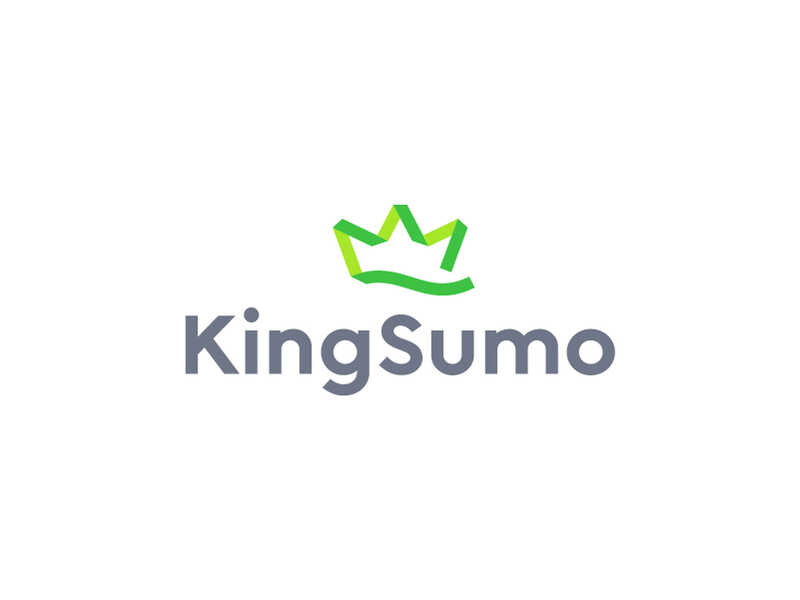What Are The Recent Trends In Ecommerce Marketing Platform?
With new trends emerging to help businesses contact their customers in more creative and efficient ways, e-commerce marketing platforms have undergone substantial evolution in recent years. The success of internet businesses is directly impacted by these developments, thus it is essential for consumers to be educated and select the platform that best suits their requirements. Let's look at a few of the most popular e-commerce marketing platform trends:
1. Personalization: The usage of personalization is one of the most popular trends in e-commerce marketing platforms. This entails customizing each customer's shopping experience according to their demographics, past browsing activity, and purchasing patterns. These platforms may now offer highly customized product recommendations, pricing strategies, and advice to meet the individual demands of every consumer thanks to the development of AI technology.
2. Integration Of Social Media: Social media is becoming a crucial component of e-commerce marketing. In order to assist businesses reach a wider audience and interact with customers more deeply, social media channel integration is a key component of recent trends in e-commerce platforms. Features like buy buttons, shoppable posts, and targeted advertisements on well-known social media sites like Facebook, Instagram, and Pinterest are examples of this.
3. Mobile Optimization: Having a mobile-optimized e-commerce platform is increasingly essential, not simply a fad, as most online purchases are now made on mobile devices. To improve the user experience overall, contemporary e-commerce platforms provide mobile-specific features like push notifications, one-click purchases, and mobile wallets in addition to responsive design.
4. Influencer Marketing: In the realm of e-commerce, influencer marketing has become extremely prominent. Influencers are now collaborating with brands to market their goods to their sizable and active social media following. In order to facilitate the process of connecting, monitoring, and managing influencer partnerships, e-commerce platforms have begun to integrate influencer management solutions.
5. AI and Data Analytics Integration: An essential component of e-commerce marketing is data. These days, e-commerce platforms use AI and sophisticated analytics to give companies insightful information on the tastes and behavior of their customers. This enables companies to refine their marketing tactics and make data-driven decisions for improved outcomes.
Benefits Of Using Ecommerce Marketing Platform
Advantages of Using Platforms for E-Commerce Marketing:
1. Boost Online Visibility: By employing various marketing strategies like email marketing, social media marketing, and search engine optimization, an e-commerce marketing platform helps you increase your online visibility. Potential clients and website traffic both rise as a result.
2. Targeted Marketing: You can direct your marketing efforts toward a certain audience by using an e-commerce marketing platform depending on their demographics, interests, and behavior. By doing this, you can make sure that the right people are seeing your marketing messages, which will increase conversion rates.
3. Simplify Marketing Efforts: Overseeing several marketing programs and channels can be exhausting and time-consuming. You may centralize all of your marketing activities with an e-commerce marketing platform, which facilitates tracking and analysis of your outcomes.
4. Personalization: You may tailor your marketing messages to your customers' tastes and behavior by using data and analytics in an e-commerce marketing platform. Your audience will benefit from a more tailored and powerful marketing experience as a consequence.
5. Boost Sales: An e-commerce marketing platform can help your firm boost sales and revenue through focused marketing and customized messages. Additionally, it lets you monitor and evaluate your sales results, giving you important information for upcoming marketing campaigns.
6. Cost-Effective: Conventional marketing techniques can be expensive and could not yield quantifiable outcomes. Conversely, an e-commerce marketing platform is a worthwhile investment for your company since it provides affordable solutions with a higher return on investment.
7. Automation: You may save time and effort while still implementing a consistent and successful marketing plan by automating your marketing duties using features like social media scheduling, retargeting ads, and automated email campaigns.
8. Interfaces: A lot of e-commerce marketing platforms have interfaces with other tools, including inventory management systems, customer relationship management (CRM) software, and e-commerce platforms. This makes it simpler to oversee every facet of your company from a single location.
9. Access To Data And Analytics: An e-commerce marketing platform gives you access to useful data and analytics that provide information about the behavior of your customers, sales figures, and marketing efficacy. This enables you to continuously enhance your marketing initiatives and make data-driven decisions.
10. Customer Engagement: You can interact with your customers in real time via a variety of channels, including social media, email, and live chat, with the help of an e-commerce marketing platform. This enhances brand loyalty and fosters relationships with your customers.
Important Factors To Consider While Purchasing Ecommerce Marketing Platform?
Before making your choice, you should think about a number of crucial aspects when buying an e-commerce marketing platform. When weighing your alternatives in this category, bear the following important points in mind:
1. Target Audience: Reaching and interacting with your target audience is essential to the success of any marketing effort. Thus, it's critical to think about whether the e-commerce marketing platform you're contemplating has targeting features that correspond with the demographic you want to reach.
2. Features And Functionality: To make sure the platform fits your unique requirements and objectives, it is essential to evaluate its features and functionality. Examine the platform's overall features, including email marketing, social media integration, CRM, analytics, and more, to see if it provides all the resources you need to support your marketing initiatives.
3. Ease Of Use: Effective management and execution of marketing initiatives depend on an intuitive user interface. Choose a platform that is simple to use and straightforward, and that provides a range of customizable options to meet the requirements and preferences of your brand.
4. Integration With Existing Systems: Verify that the e-commerce marketing platform can easily integrate with any other software or solutions your company currently employs. This will assist in streamlining procedures and preventing any interruptions to your ongoing business activities.
5. Scalability: Your company's marketing requirements will change as it expands. Selecting a platform that can grow with your company and meet your expanding needs in terms of campaign volume, data storage, and user base is crucial.
6. Customer Support: Having access to trustworthy customer support is essential when purchasing any product. Find out if the platform offers phone, email, or live chat assistance, and evaluate the availability and response times of each.
7. Pricing And Budget: Since different e-commerce marketing platforms have different price structures, it's critical to assess each platform's worth and your budget. Examine the features offered by various price levels to see whether they suit your requirements and financial constraints.
8. User Reviews And Reputation: Be careful to look up and read reviews left by both past and present platform users. This will offer important information about the platform's efficacy, dependability, and general degree of user happiness. You can choose an e-commerce marketing platform that best meets your company's demands and objectives by taking these things into account. To assist your marketing efforts and eventually expand your company, it's critical to thoroughly evaluate each platform and select the one that provides the best mix of features, functionality, and support.
What Are The Key Features To Look For In Ecommerce Marketing Platform?
To guarantee the success of your online business, there are a few essential elements to consider when selecting the best e-commerce marketing platform. From increasing internet traffic to boosting conversions and expanding your clientele, a dependable and effective platform may make all the difference. The following are the essential characteristics of an e-commerce marketing platform to assist you make an informed choice:
1. Multichannel Capability: Choose a platform that makes it simple for you to sell your goods over a variety of platforms, including marketplaces, social media, and your website. With this tool, you may reach a wider audience and offer your clients additional choices for what they can buy.
2. Marketing Automation: You can build and plan email campaigns, set up emails to recover abandoned carts, and customize your marketing efforts to target particular client categories with the help of marketing automation features included in a decent e-commerce marketing platform.
3. Analytics And reporting: Making well-informed business decisions need data. To monitor your website's traffic, sales, and consumer activity, look for a platform that provides strong analytics and reporting capabilities. This will assist you in measuring the effectiveness of your marketing initiatives and pinpointing areas that require improvement.
4. SEO And SEO Optimization Tools: To increase the search engine exposure of your website, your e-commerce marketing platform should come with integrated tools and integrations. Features like meta tags, improved product descriptions, and SEO-friendly URLs are a few examples of this.
5. Customer Segmentation And Targeting: To increase conversions, you must be able to divide up your clientele and send them tailored marketing communications. To do this, a decent platform should have capabilities like CRM integrations, behavior-based targeting, and customer tagging.
6. Social Media Integration: In the current digital environment, any business must have a strong social media presence. To promote your items and attract a larger audience, look for a platform that enables smooth interaction with well-known social media platforms.
7. Mobile Compatibility: Having a platform that is geared for mobile users is essential, as mobile devices account for the bulk of web traffic. For a flawless user experience, confirm that the platform you select has a mobile-friendly checkout and responsive design.
8. Scalability: You'll need a platform that can grow with your company. Choose a platform that can easily handle your future business needs and gives a variety of price options. You can be sure you are investing in a platform that will support your business objectives and propel your online success by taking into account these crucial qualities when selecting an e-commerce marketing platform.
Why Do Businesses Need Ecommerce Marketing Platform?
For companies of all sizes, having a strong online presence is essential in the current digital era. Since e-commerce has grown in popularity, it is now more crucial than ever for companies to have a strong online marketing plan. An e-commerce marketing platform can help with this. A software program called an ecommerce marketing platform aids companies in advertising and selling their goods and services online. It offers a unified platform for handling a range of marketing initiatives, including search engine optimization, social media marketing, email marketing, and more.
You might be asking yourself why companies require an e-commerce marketing platform. Let's examine the specifics.
1. Expand The Reach And Visibility Of Your Brand: Reaching a larger audience is one of the main advantages of an e-commerce marketing platform for businesses. Businesses may reach a wider audience online and increase brand awareness among prospective buyers with the correct tools and tactics. Increased website traffic, more conversions, and eventually more income can result from this.
2. Focused Advertising Campaigns: Businesses can more precisely target their marketing campaigns with the help of an e-commerce marketing platform. Businesses can target particular client profiles or demographics with their marketing campaigns by utilizing features like customer segmentation and targeted messaging. Because the marketing efforts are focused on the most relevant target, this may lead to a higher return on investment.
3. Automation Conserves Resources And Time: It might take a lot of time and resources to manually manage every facet of e-commerce marketing. Businesses can save time and concentrate on other crucial areas of their operations by automating numerous marketing chores using an e-commerce marketing platform. Because companies no longer have to rely on a sizable marketing staff to manage everything, this can also result in cost savings.
4. Making Decisions Based On Data: Businesses can obtain useful information and insights about their clients, sales, and marketing initiatives via an e-commerce marketing platform. Making educated decisions and improving marketing tactics for greater outcomes are possible with the use of this data. Businesses may stay ahead of the competition and enhance their marketing efforts over time by using a data-driven approach.
5. Connectivity With Additional E-commerce Resources: Website builders, customer relationship management (CRM) programs, and payment gateways are just a few examples of the e-commerce solutions that frequently interface with an e-commerce marketing platform. This facilitates e-commerce and offers a smooth experience for customers and businesses alike.
Which Industries Can Benefit The Most From Ecommerce Marketing Platform?
With more and more businesses using online sales as a way to connect with clients, e-commerce has grown to be a crucial aspect of the contemporary business environment. But having an e-commerce website alone is insufficient. Businesses must have a strong marketing plan in place if they want to succeed in the cutthroat world of online retail. An e-commerce marketing platform can help with this. An e-commerce marketing platform is a software program created especially to assist companies in online product and service promotion. To develop a thorough marketing plan, it integrates a number of tools and functions, including analytics, social media advertising, email marketing, and SEO.
What sectors stand to gain the most from an online marketing platform, then? Let's examine it more closely.
1. E-commerce And Retail: Although it might seem apparent, one of the primary advantages of an e-commerce marketing platform is the retail and e-commerce sector. Any retail organization must have a strong online presence given the popularity of internet shopping. These companies may expand their customer base, boost their online presence, and eventually boost sales with the aid of an e-commerce marketing platform.
2. Tourism And Hospitality: Another area that stands to gain a great deal from an e-commerce marketing platform is the hotel and tourist sector. Digital marketing is essential to the success of these companies since they mostly rely on online reservations and bookings. Hotels, resorts, and travel agencies can use an e-commerce marketing platform to advertise their services, connect with new clients, and enhance the overall reservation process.
3. Clothes And Fashion: Another sector that can benefit from an e-commerce marketing platform is the fashion and apparel business. Businesses must differentiate themselves from the competition due to the emergence of online fashion shops. Promoting new collections and sales, identifying and targeting the appropriate groups, and customizing the shopping experience for customers are all made possible by an e-commerce marketing platform.
4. Well-Being And Health: Online sales in the health and wellness sector, which includes everything from health food stores to gyms and fitness centers, have increased significantly. These companies may reach a wider audience, increase brand recognition, and advertise their goods and services with the use of an e-commerce marketing platform. Additionally, it can help develop customized marketing strategies according to the wellness and health requirements of clients.
5. Electronics For Consumers: The demand for consumer electronics has increased as a result of ongoing technological improvements. The market is fiercely competitive for everything from computers and smartphones to smart home appliances. An e-commerce marketing platform can help in this situation. It can assist consumer electronics companies increase sales, foster client loyalty, and maintain an advantage over rivals because to its many features.
Conclusion
To sum up, selecting the best e-commerce marketing platform for your company is essential to success in the cutthroat online industry. We have addressed every important aspect that you should think about before making a choice in this buyer's guide. Identifying the features and tools required for your internet marketing strategy requires first evaluating your company's demands and objectives.
Additionally, choose a platform that gives you the most return on your investment while keeping your budget in mind. Next, think about the platform's degree of flexibility and customization. This will enable you to modify your marketing strategies in accordance with the particular needs of your business. Integrations with other platforms and technologies are also crucial to take into account since they can improve the general effectiveness and functionality of your marketing initiatives.
Additionally, a key consideration in your decision-making process should be the platform's usability and convenience of usage. A complicated and challenging-to-use platform might hinder your marketing efforts by causing delays and dissatisfaction. Last but not least, the platform's training and customer service services can have a big impact on your user experience.
Seek out platforms that provide dependable and convenient support choices. Before choosing an e-commerce marketing platform, thoroughly consider all of these criteria and compare them. You may position yourself for long-term success in the field of e-commerce marketing by investing the time necessary to thoroughly investigate and select the best platform for your company.






















